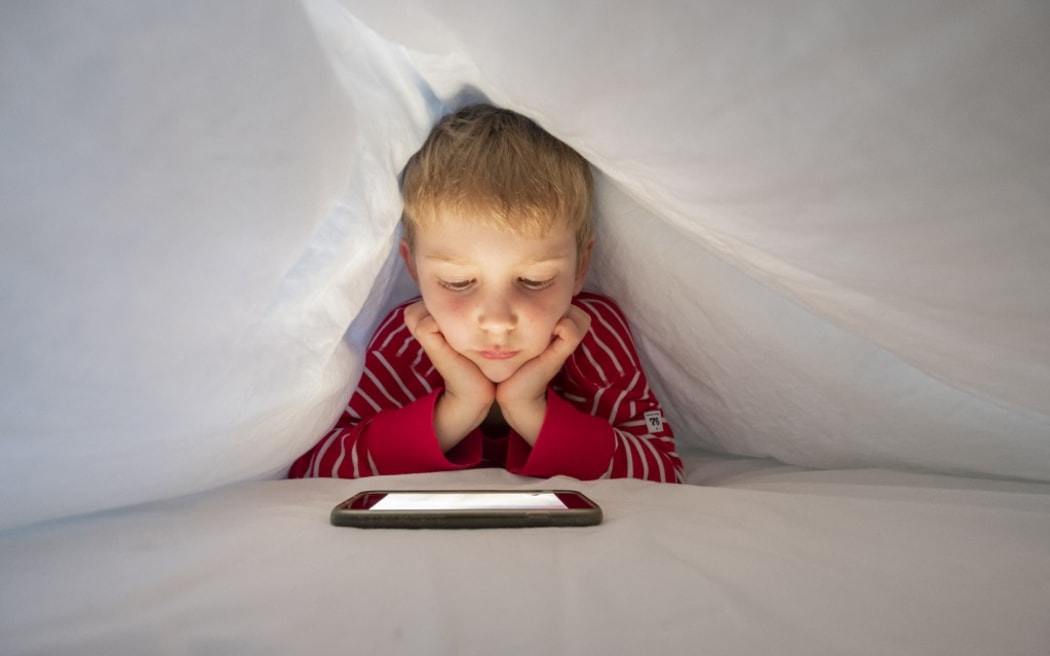New research on how screen time affects children’s language development makes for sober reading.
With family members now so often on devices, the average three-year-old could be missing out on thousands of words a day, Australian researchers found.

Photo: CONCEPTUAL IMAGES/SCIENCE PHOTO LIBRARY
The screen time habits of 220 families with toddlers were examined in the study, which was published by the Telethon Kids Institute.
Using advanced speech-recognition technology, the researchers were able to count the number of words children heard and spoke and also record how much electronic noise they were exposed to, senior research officer Dr Mary Brushe told Nights.
“The device would capture all the audio happening around the child over a 16-hour day and then give us the amount of adult words and conversations and electronic noise they heard.
“We couldn't necessarily tell just from that raw data what type of electronic noise it was so our research team went back and we listened to 7000 hours of that audio to work out if it was screen ime or if it was some other kind of electronic noise like a microwave beeping.”
The researchers sought to better understand early language experiences and how much conversation children were engaging in at home, Dr Brushe says.
Eventually, they realised the data might also reveal deeper insights.
“We went back to our families in this study and we asked them permission to let us listen to that electronic noise audio so that we could do that extra categorisation of screen time versus other noise, which actually gave us a very unique opportunity as parents weren't aware when they first did their recording day that we would be focusing on screen time.
“[As a result] you don't have that kind of behaviour change that sometimes happens when families know they're in a research study and know we're trying to track their screentime.”
The researchers found that increased screen time led to a decrease in the number of adult words children heard.
“The results were most profound when children were three years old. For just one minute of screen time, they were hearing seven fewer adult words, saying five fewer words themselves and engaging in one less conversation.
“What we saw in our data was that the average four-year-old wasn't just having one minute of screen time, they actually were exposed to just under three hours of screen time.”
That equates to a child potentially missing out on hearing up to 1100 words from their parent in almost 200 conversations each day.
Children learn language by hearing words, Dr Brushe says, and also via conversations with their parents.
“One thing that we really tried to always reinforce is that these [conversations] can start happening even before the child starts talking themselves.”
So what tips do the researchers have for supporting a child's language education in the age of digital devices?
Number one - pick educational content for them to engage with.
“We want content that gives lots of room for children to be able to respond. A bit more slow-paced, not so much of the flashy, bright colours, and fast-paced sequences.”
Interactive co-viewing, where a child and adult watch the same screen content at the same time, is also important.
Having the TV on "in the background" is something Dr Brushe doesn't recommend for a child's developing brain.
“Young children really struggle to differentiate between two different tasks at once.
“So even though you might think your child's focusing on something else they're probably being somewhat distracted by the TV.”

